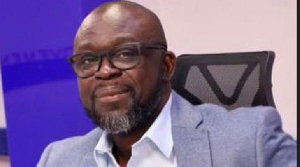In the context of a country, the words “reset” and “upgrade” carry significant weight, particularly as Ghana stands at a crucial crossroads in its development. According to the Merriam-Webster dictionary, “reset” is defined as “to set again or differently,” often implying a return to a previous state or a fresh start. In contrast, “upgrade” means “to raise something to a higher standard, in particular to improve (a machine, software, etc.) by adding or replacing components.” These definitions are critical in understanding the direction that political parties propose for Ghana’s future.
As the Communications Director for the New Patriotic Party (NPP) in the United Kingdom, it is essential to articulate why Ghana does not need a reset, as proposed by John Dramani Mahama of the National Democratic Congress (NDC), but rather an upgrade, as envisioned by Dr. Mahamudu Bawumia of the NPP. The NPP’s vision for Ghana is one of continuous improvement, modernisation, and enhancement, building on the foundations laid by the current administration while addressing the gaps and challenges that remain.
The Danger of a Reset: A Step Backwards:
The NDC’s proposal to “reset” Ghana is not just a call for change; it is a call for disruption, potentially reversing the significant progress we have made as a nation. A reset, by its very nature, is often violent, abrupt, and regressive. It suggests wiping the slate clean, which might seem appealing to some but comes with substantial risks. Historically, countries that have undergone resets—whether through revolutions, coups, or severe economic overhauls—have often found themselves in a state of turmoil. For example, the French Revolution, while eventually leading to significant changes, also brought about years of instability and violence. Similarly, Zimbabwe’s economic reset led to hyperinflation and widespread poverty, from which the country is still recovering.
Resetting Ghana could mean undoing the democratic gains we have fought so hard to achieve. It could lead to a period of uncertainty where the rule of law is undermined, institutions are weakened, and the social fabric of our nation is torn apart. Responding to John Mahama’s 2016 Ghana is also nothing to write home about, as that period was characterised by high unemployment, dumsor at a huge cost to our economy, few ambulances, and no Free SHS, just to name a few. In the worst-case scenario, a reset could push Ghana towards a failed state, where governance collapses and the country is left in chaos.
The Case for an Upgrade: A Step Forward:
In contrast, the NPP advocates for an upgrade—a process that is peaceful, forward-looking, and focused on enhancing what we have already built. An upgrade involves identifying areas where the current system can be improved, introducing new technologies, better policies, and more efficient governance structures, all while maintaining the stability and continuity of our democratic institutions.
Countries like South Korea have successfully upgraded their systems, moving from a war-torn nation in the mid-20th century to one of the world’s leading economies through continuous improvements in technology, education, and governance. Estonia is another example, where digital governance and a commitment to modernisation have turned it into one of the most advanced digital societies in the world.
Dr. Bawumia’s Vision: Upgrading Ghana for the Future:
This vision of upgrading Ghana is at the heart of Dr. Mahamudu Bawumia’s strategy. In his recent four-hour media engagement, Dr. Bawumia demonstrated a deep understanding of the current challenges facing Ghana. While acknowledging the progress made, he also pointed out areas where further improvements are necessary—whether in the digital economy, infrastructure, or social services.
Dr. Bawumia’s approach is not about tearing down what has been built but about enhancing it. He recognises positive changes that should be made in Ghana currently and is committed to filling them through thoughtful, strategic upgrades. His focus on digitalisation, for example, is a clear indication of how the NPP plans to bring Ghana into the 21st century, making our systems more efficient, transparent, and accessible to all citizens.
An upgrade under the NPP means better roads, improved healthcare, more accessible education, and a stronger economy. It means building on the successes of the Free SHS program and expanding it to ensure that every Ghanaian child has access to quality education. It means leveraging technology to streamline government services, reduce corruption, and make life easier for all Ghanaians.
The Choice for Ghana’s Future:
The choice before Ghanaians is clear. A reset, as proposed by John Mahama of the NDC, threatens to undo years of progress, leading us down a path of instability and potential chaos. It is a step backwards, one that could jeopardise the democratic values we hold dear.
On the other hand, an upgrade, as envisioned by the NPP and Dr. Bawumia, offers a path forward—one that builds on our strengths, addresses our weaknesses, and propels Ghana into a future of prosperity, stability, and growth. This is not just a political choice; it is a choice about the kind of future we want for ourselves, our children, and generations to come.
Ghana needs an upgrade, not a reset. The NPP is ready to lead that upgrade, ensuring that our nation continues on its path of progress, peace, and prosperity. Let’s all vote massively for NPP come December 7, 2024.
Opinions of Tuesday, 27 August 2024
Columnist: Kwaku Bimpeh



















